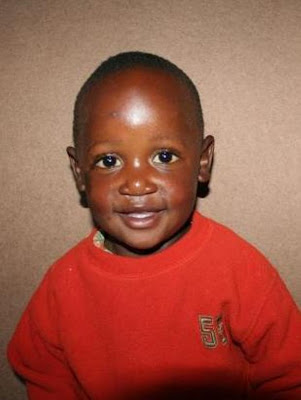Muzorewa, Zimbabwe's First Black Prime Minister Dies. Mugabe is Scathing In His Condemnation

Bishop Abel Muzorewa in the garden of his home in Borrowdale, Harare. The former Prime Minister died of cancer day before yesterday while mourners were gathered for the funeral of his brother, who had died a few days before.
Harare, Zimbabwe, 10 April 2010
Bishop Muzorewa, who was the first black person to become Prime Minister of Zimbabwe (then known as Zimbabwe-Rhodesia), has died.
The president of Zimbabwe, Robert Mugabe, has not sent a message of condolence or acknowledged the death of the Bishop in any way. At least not in public.
In private, though, I am told the president reacted to the news by saying that he still thinks that the blood of the "children"who died at Nyadzonya (a camp for Mugabe's fighters in Mozambique during the 1970s which was bombed when Muzorewa was Prime Minister in a Unity Government with Ian Smith) was "dripping from Muzorewa's hands".
This is not a surprise.
Mugabe considered Muzorewa a worse person than even Ian Smith, who put the Mugabe behind bars for ten years when Zimbabwe was still ruled by a white minority and called Rhodesia. Mugabe's beef with Muzorewa was with the Selous Scouts, an Auxiliary Force made up of black soldiers fighting on the side of the white minority government during the colonial era (and the Unilateral Declaration of Independence - UDI by the Smith Government).
What this force did was dress up like guerrillas, luring many of Mugabe's fighters into fatal traps. They also walked into villages pretending to be Mugabe or Nkomo's guerrillas and, if the villagers gave them food and shelter, then the village would get a visit the next day or week from the "official Rhodesian army", accused of sheltering guerrillas and slaughtered or tortured.
It is for this reason and this reason alone that Muzorewa will not be given space at Heroes Acre.
Mugabe says the man was a traitor and his bitterness comes from the fact that it was Mugabe and Nkomo who essentially made Muzorewa before he decided to become his own man.
Here's how:
With Mugabe's party, as well as that of Joshua Nkomo, banned from Rhodesia, the two exiled leaders who were fighting a liberation war decided that they needed a political front within Zimbabwe to mobilise the people and present a united front of opposition to white minority rule.
Joshua Nkomo, in his autobiography, says that they gave their blessing to Muzorewa to form this united front within Rhodesia's borders and considered him a "placeholder"for the exiled leaders, a sort of proxy who would mobilise people (in the first instance, the purpose was to mobilise opposition to the Pearce Commission, a British contraption that had been cobbled together to gather the opinions of blacks in Rhodesia on half-baked reforms that were supposed to concede partial power in parliament to the black people of the British colony of Rhodesia).
Muzorewa, Nkomo says, mistakenly believed that he was now a leader in his own right and decided to forge his own path, parting ways with the fighter who were out in the bush and in exile. He started negotiating for independence with Ian Smith and even succeeded briefly in getting Smith to step aside (not down) while Muzorewa became Prime Minister.
Mugabe and Nkomo promptly denounced him in public as a traitor and, with Mugabe threatening to behead him alongside Ian Smith in a radio broadcast from Mozambique in 1979.
After the collapse of the Zimbabwe-Rhodesia Government, the British moved in and supervised the elections that made Mugabe Prime Minister in 1980. Mugabe decided to not behead Smith or Muzorewa as realpolitik sank in. In those elections of 1980, Muzorewa, who had been tipped by the British and the Rhodesians to win, managed to secure only 3 seats as Mugabe threatened that is he lost the vote, he would go back to the bush and continue fighting for real independence.
Those elections basically spelled doom for Muzorewa and he never recovered from his 1980 loss, disappearing from public view completely. He emerged briefly in the 1990s to lead an opposition grouping called UP (United Parties) but failed to make any headway against the Mugabe juggernaut.
Mugabe is unforgiving, even in death. Even former comrades of his who turned against him (and therefore against the liberation war and against black Zimbabweans in his mind) find themselves out in the cold after death.
Unlike in South Africa, for instance, where even one of the most rabid defenders of apartheid, P.W. Botha (The Great Crocodile) was given a state assisted funeral at his death, in Zimbabwe, newcomers, who did not fight in the 1970s find space at the Heroes Acre while those who turned after making a contribution are treated as outcasts, their names mud even after death.
As an interesting aside, urban legends are already circulating in Zimbabwe, with street talk saying the Bishop died of a heart attack after hearing the news of the death of his brother.
The fact of the matter, of course, is that he had been unwell for some time with cancer and it just so happened that the ailment claimed him so close to the date of the death of his own brother, who died in the United States.
The Bishop was 85 yeas old.



Discovered you through entrecard. Very informative. Thanks.
ReplyDelete